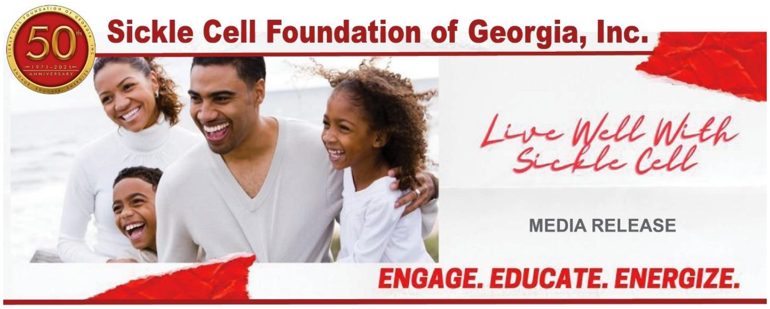DISCLAIMER
The information and materials accessed through or made available for use on any of our Sites, including, any information about diseases, conditions, treatments, or medicines, are for informational purposes only. The Content is not intended to be and is not a substitute for professional medical advice, diagnosis, or treatment, and your participation on our Sites does not create a healthcare professional-patient relationship. You should consult a doctor or other qualified health care professional regarding any questions you have about your health or before making any decisions related to your health or wellness. Call your doctor or 911 immediately if you think you may have a medical emergency.compose your message
message sent
email sent successfully
Trusted Resources: News & Events
Latest announcements and gatherings
Petition: Implement NIH Guidelines in Hospital Emergency Rooms when Managing a Sickle Cell Crisis
HELP US REACH 1,500 E-SIGNATURES BY DECEMBER 17, 2021
A Message from Blaze Eppinger:
“The care for a patient living with sickle cell can vary drastically when visiting an emergency room. Patients can wait long hours in waiting rooms, and that can be seen as an eternity when suffering a sickle cell pain crisis. Sometimes a patient’s excruciating and unbearable pain may even be doubted by health care professionals.
“What I hope to achieve with this petition is one word, protocol. The National Institutes of Health(NIH) published evidence-based management best-practices (guidelines) that can be found online on how to manage acute complications for those living with sickle cell disease. In the documentation under Chapter 3 (Acute Pain Algorithm) it states that a patient coming in with complications should be triaged as High Priority. A patient should receive pain medication within 30 minutes of triage or 60 minutes within registration. Exact wording from documentation says, ‘Pain is to be treated promptly and aggressively.’
“Sadly, the consensus from the sickle cell community does not reflect the guidelines NIH published. Doctors are hesitant to administer certain medications, triage can take hours, and bedside manner can leave patients feeling unheard.”
“I ask that, with your support and your signatures, we receive consistency. Someone in already unbearable pain should not dread the treatment they may receive when visiting their local ER. You would like to feel a sense of relief that when visiting the hospital, you know your pain will soon be alleviated. This is a real problem; if you don’t believe us, believe the National Institutes of Health.”
This event has ended.

 +myBinder
+myBinderRelated Content
-
news & eventsThe National Sickle Cell Advocate Network (NSCAN)NSCAN, with the assistance of an Expert ...
-
people & placesArrey Echi Agor NdakawArrey Echi Agor Ndakaw is the Interim Vi...
-
education & research8 Tips to Support Students With Sickle Cell DiseaseIn the United States, sickle cell diseas...
-
people & placesMiralda CharlesMiralda Charles is a personable, motivat...
-
people & placesThe ELM ProjectThe mission of The ELM Project is to enh...
-
news & eventsHemoglobinopathy Counselor Training Course – VIRTUALUPDATE! 2020 Hemoglobinopathy Counselor ...
-
people & placesCayenne Wellness CenterCayenne Wellness Center and Children’s...
send a message
To improve your experience on this site, we use cookies. This includes cookies essential for the basic functioning of our website, cookies for analytics purposes, and cookies enabling us to personalize site content. By clicking on 'Accept' or any content on this site, you agree that cookies can be placed. You may adjust your browser's cookie settings to suit your preferences. More Information
The cookie settings on this website are set to "allow cookies" to give you the best browsing experience possible. If you continue to use this website without changing your cookie settings or you click "Accept" below then you are consenting to this.
Support for this site is provided by

This platform is made possible through a partnership with the Sickle Cell Disease Association of America, Inc. (SCDAA) and its member organizations. SCDAA's mission is to advocate for people affected by sickle cell conditions and empower community-based organizations to maximize quality of life and raise public consciousness while advancing the search for a universal cure.




